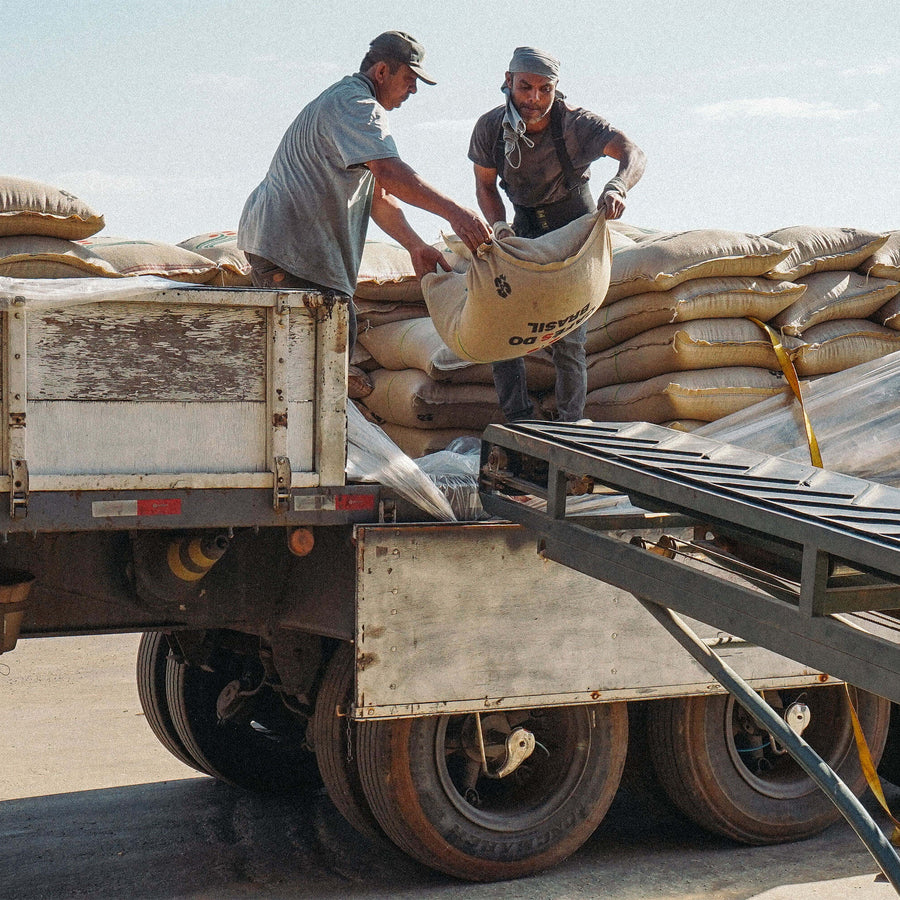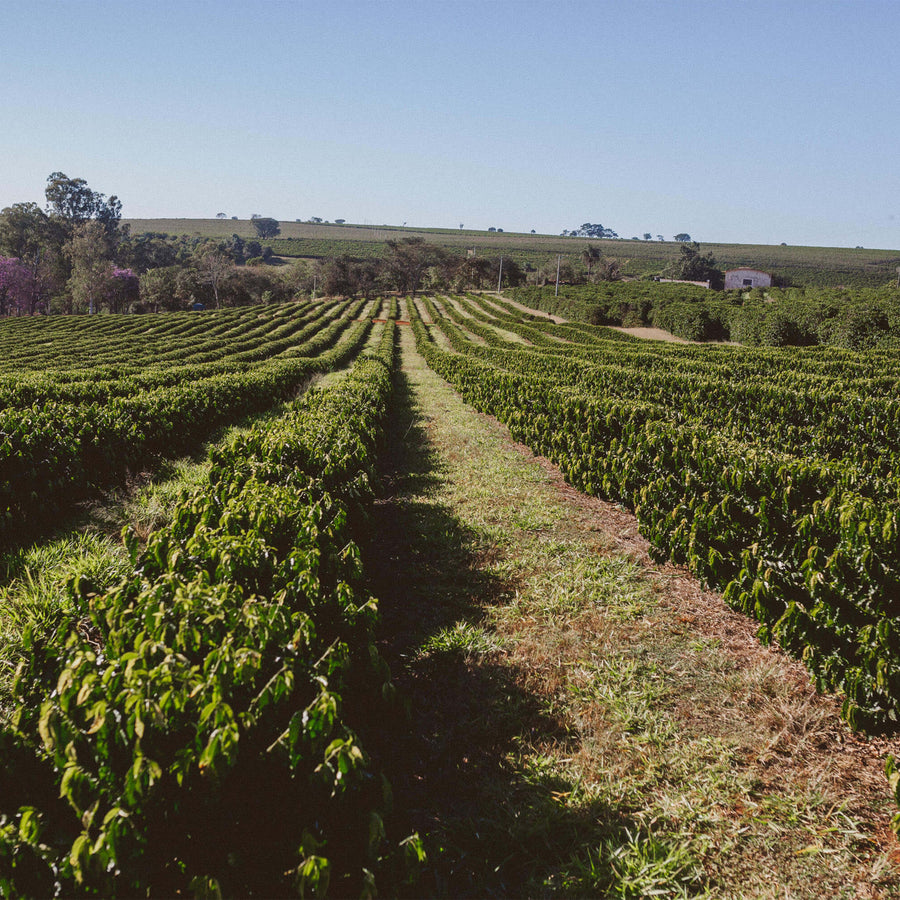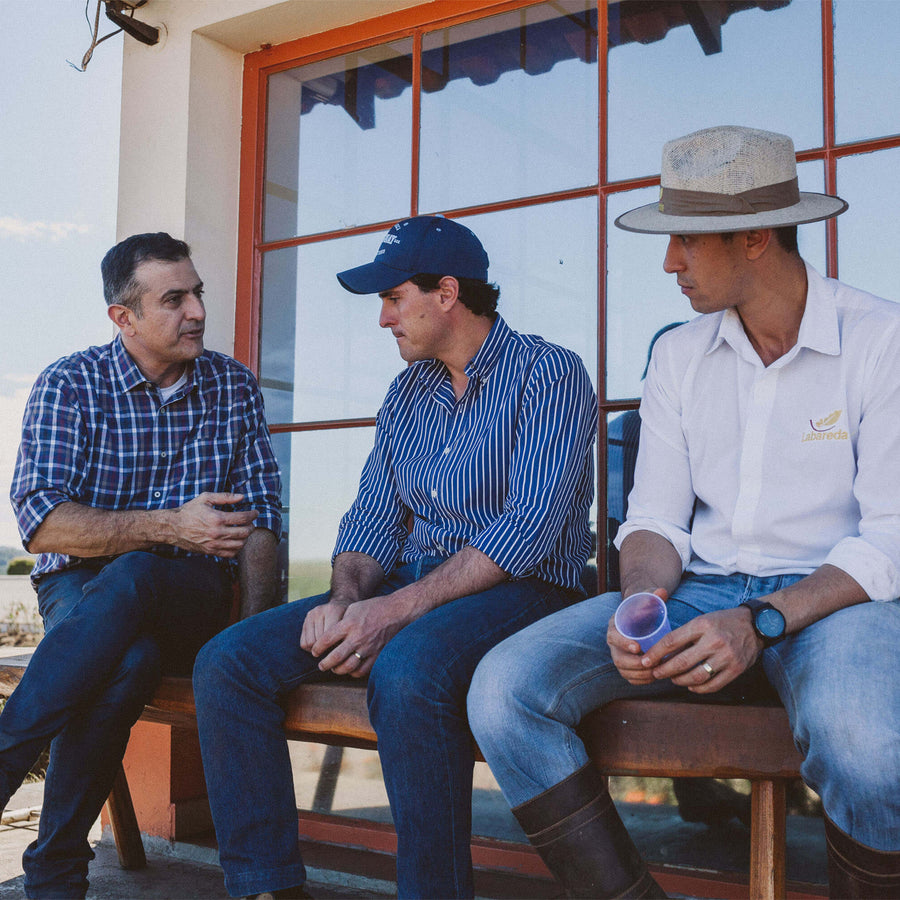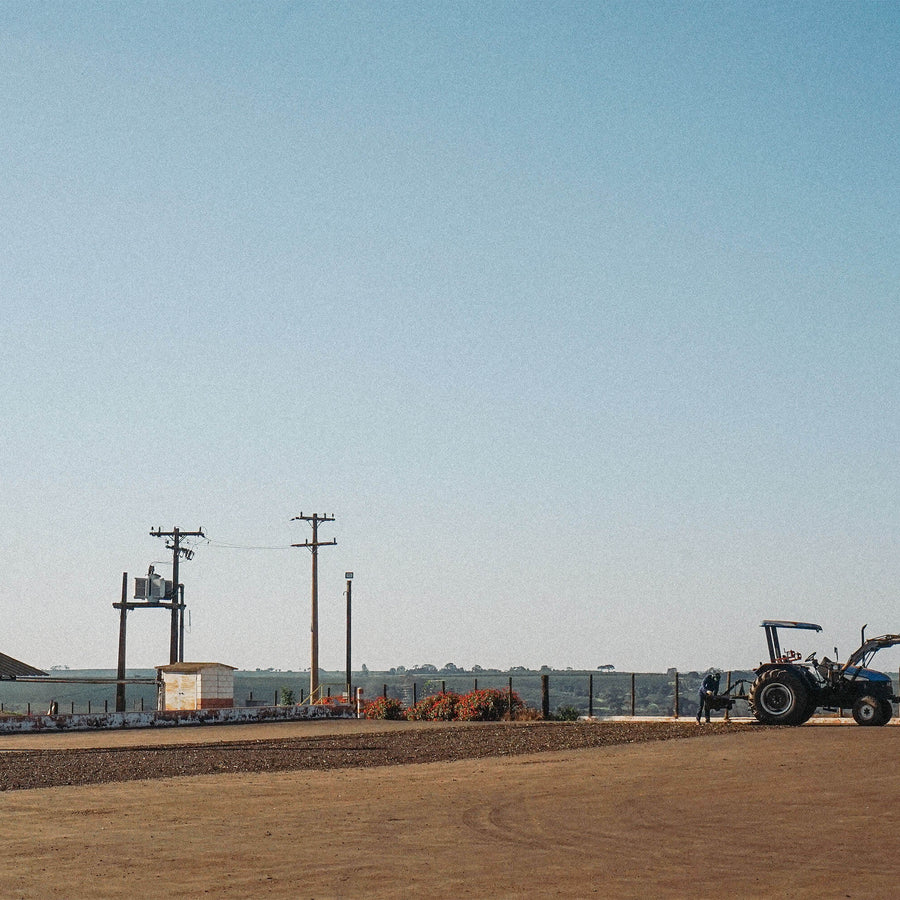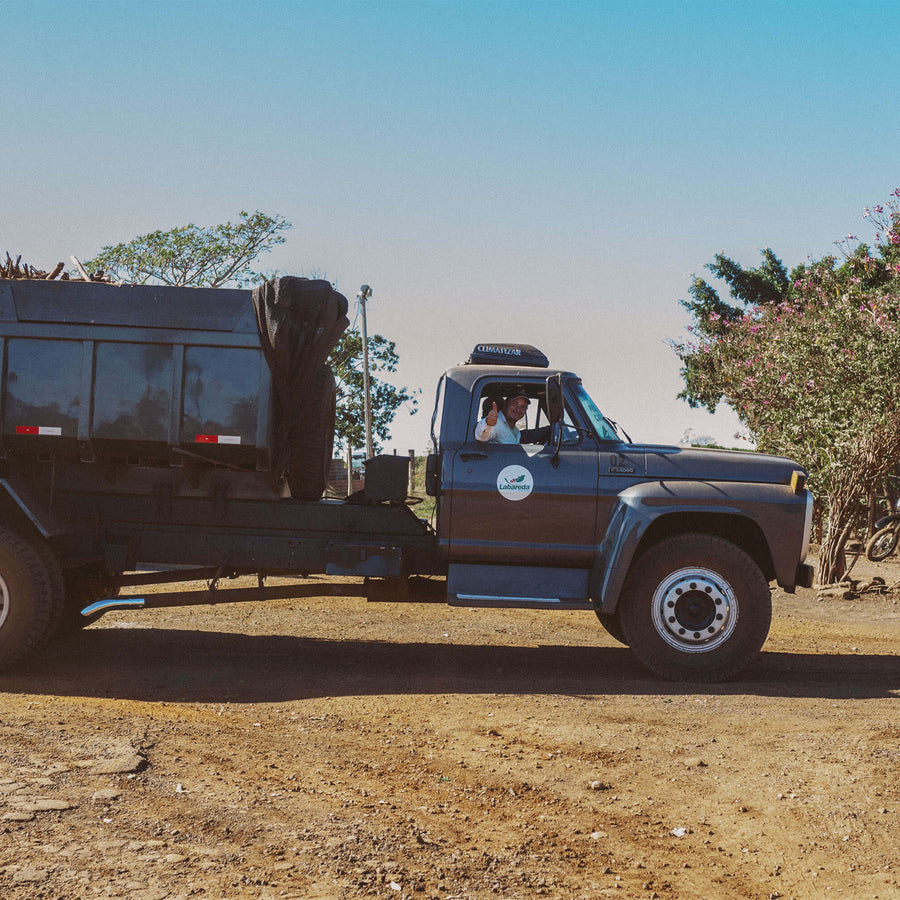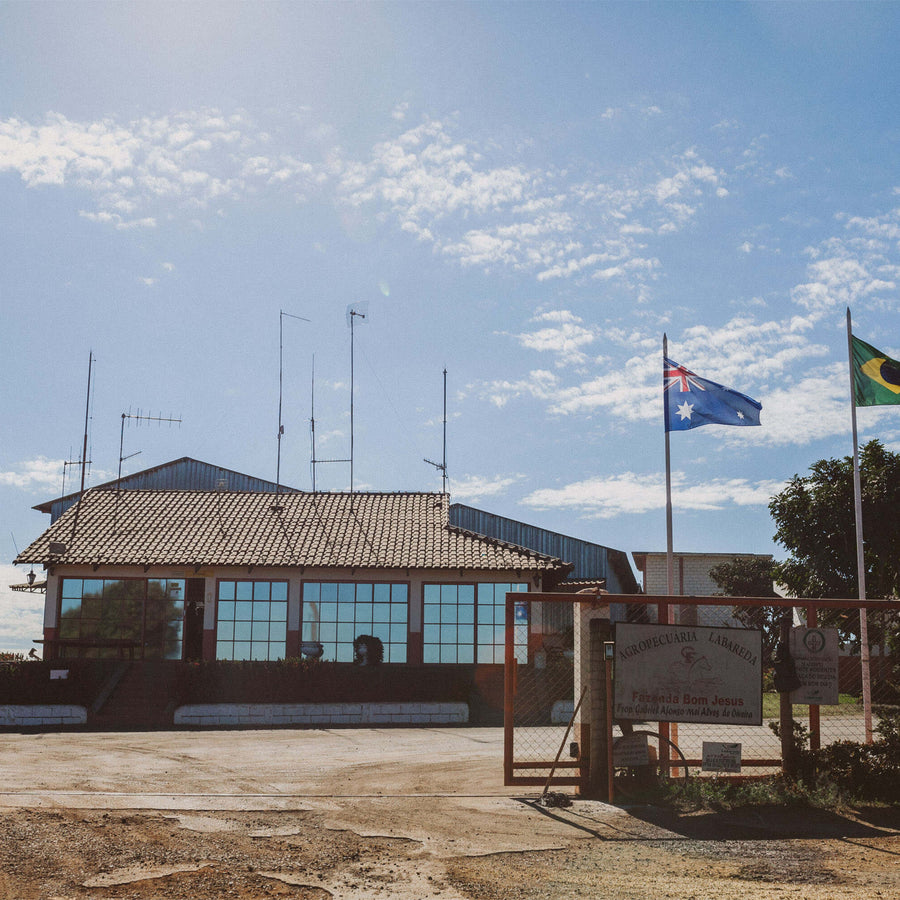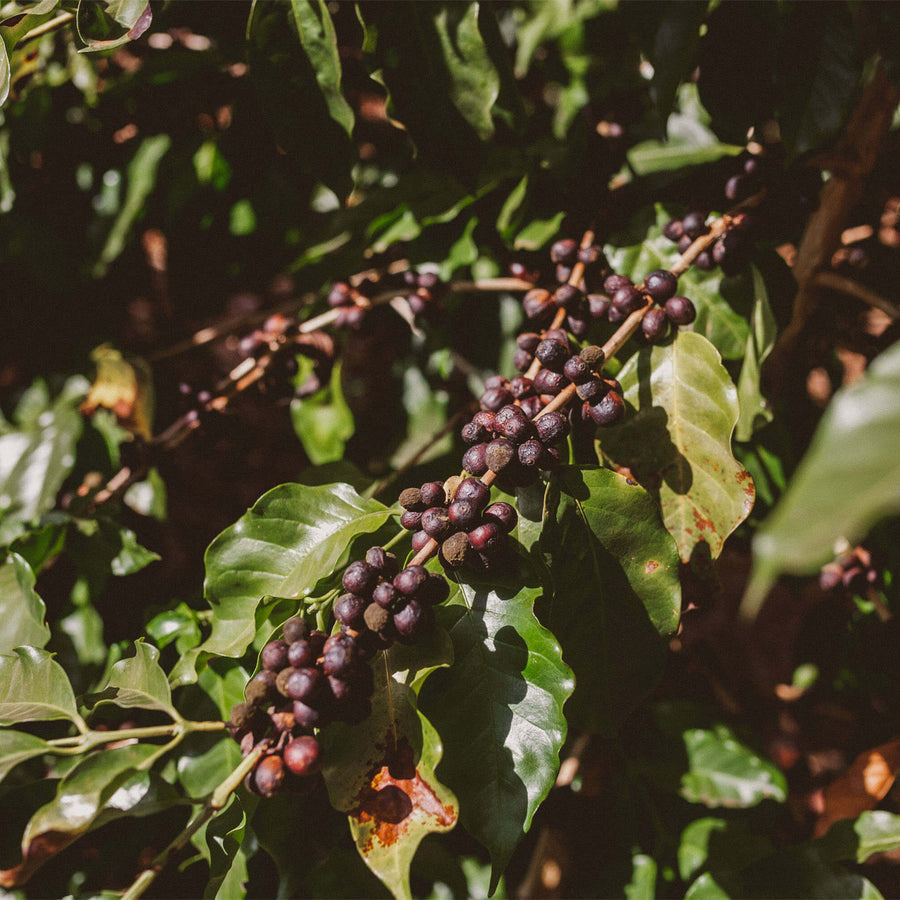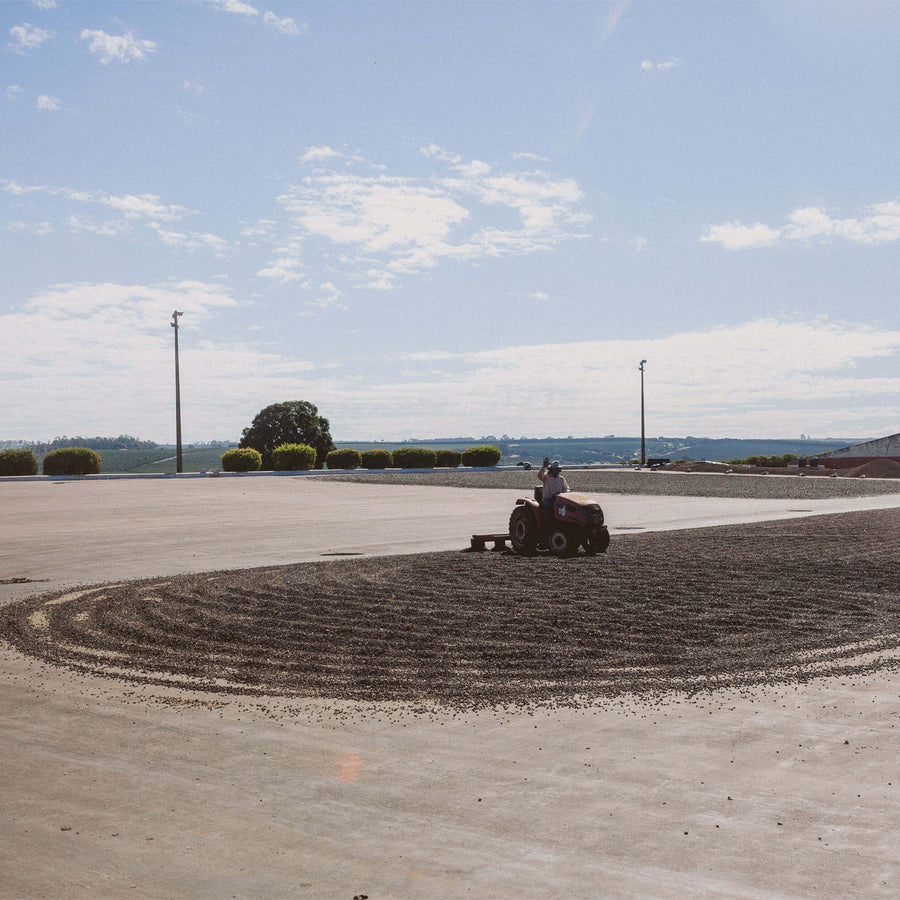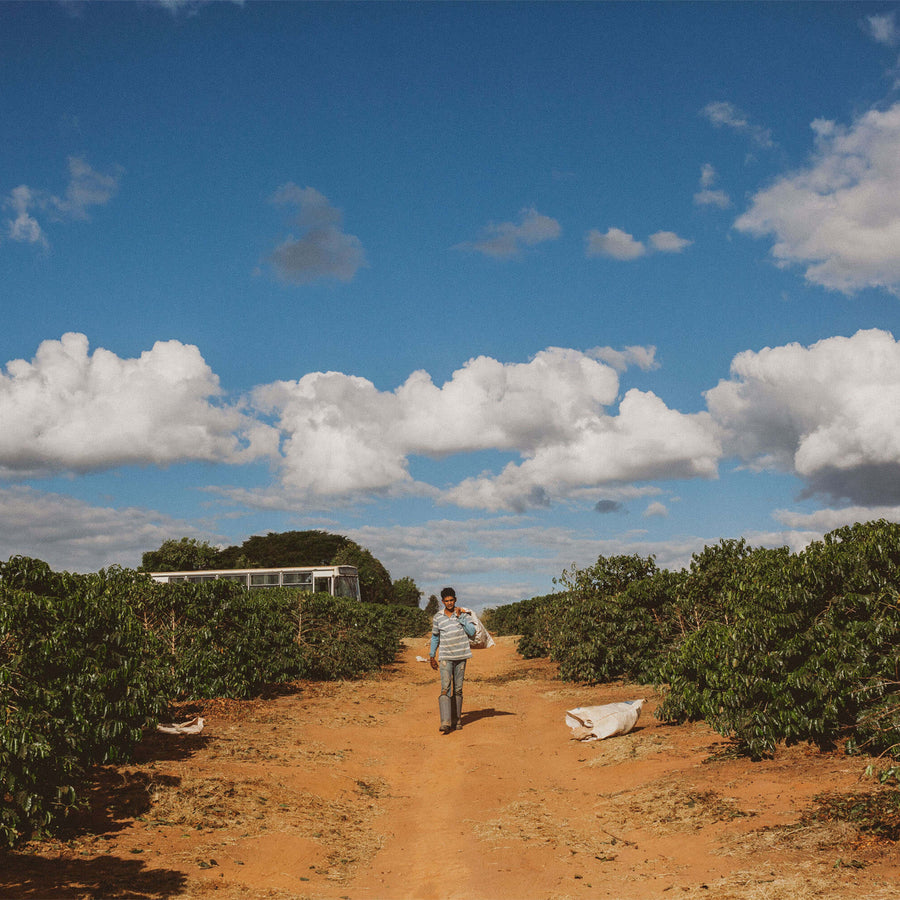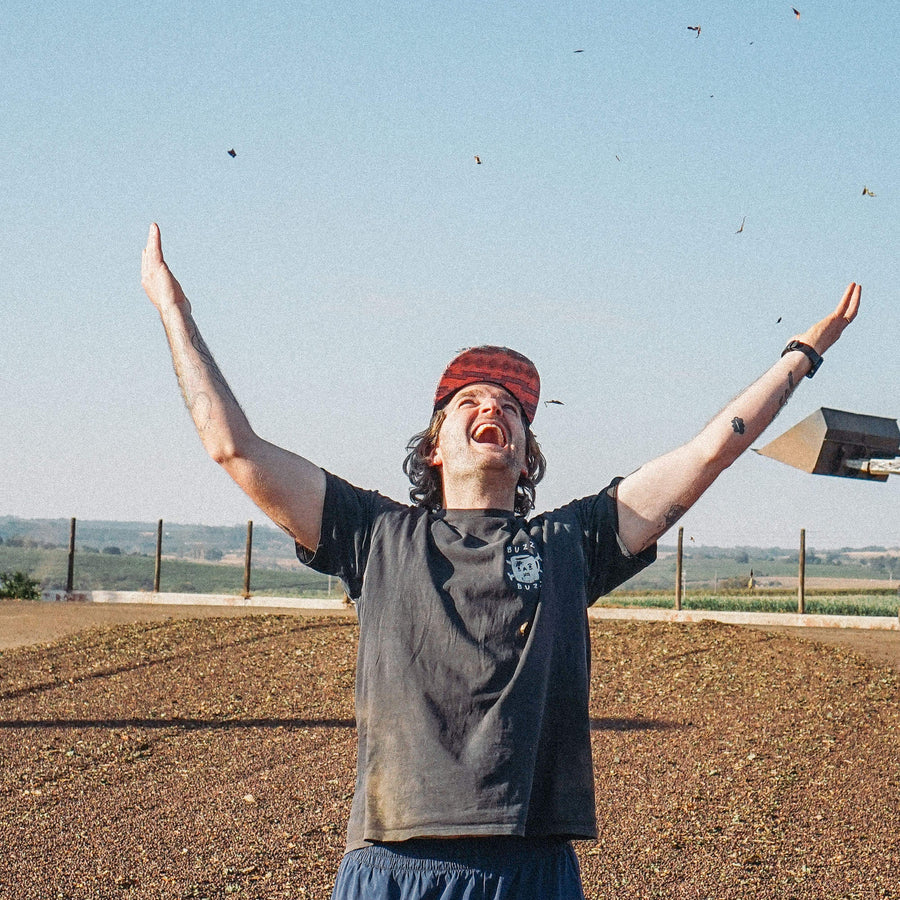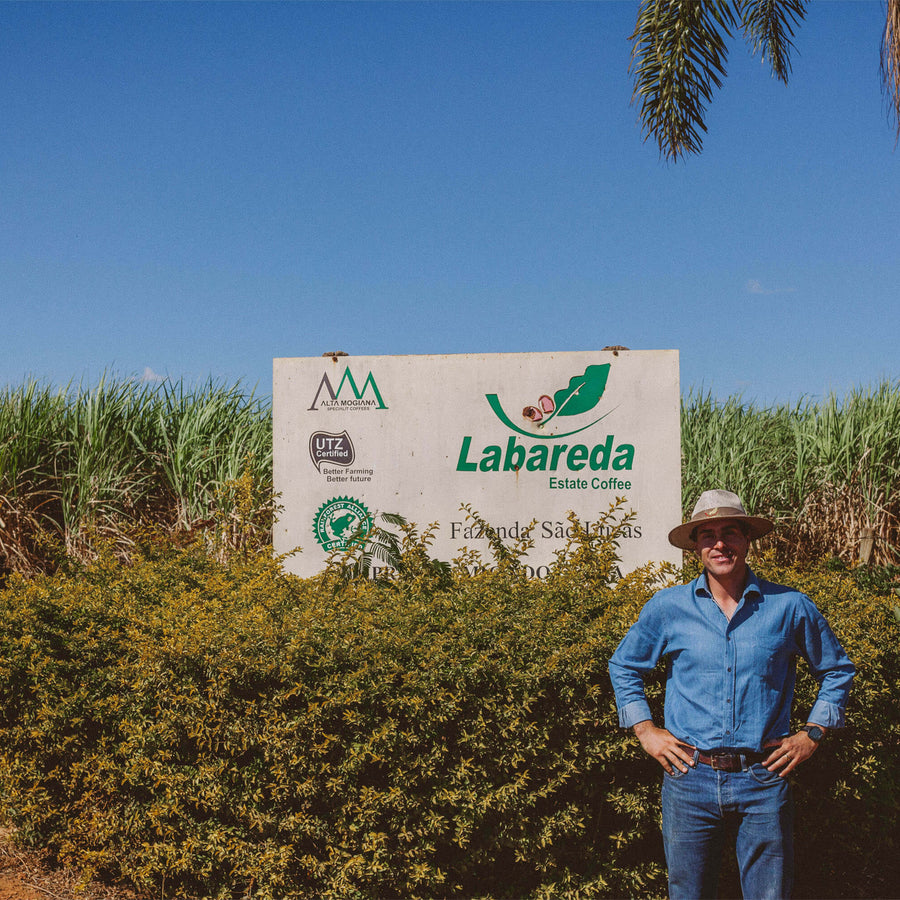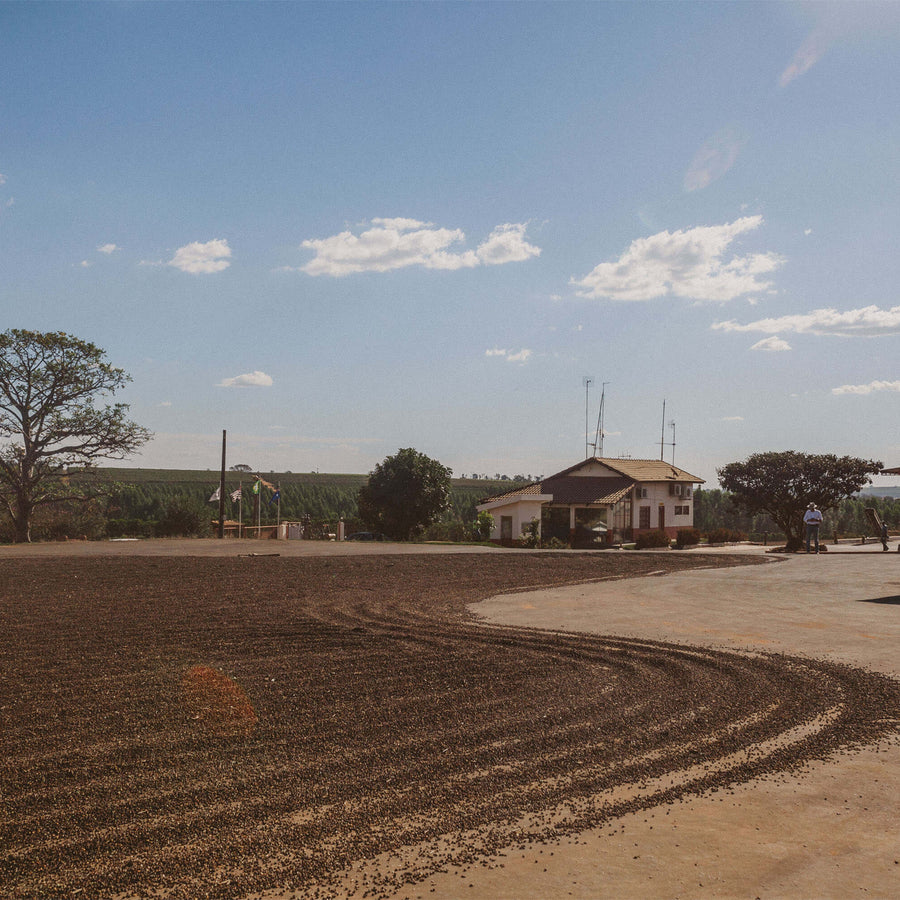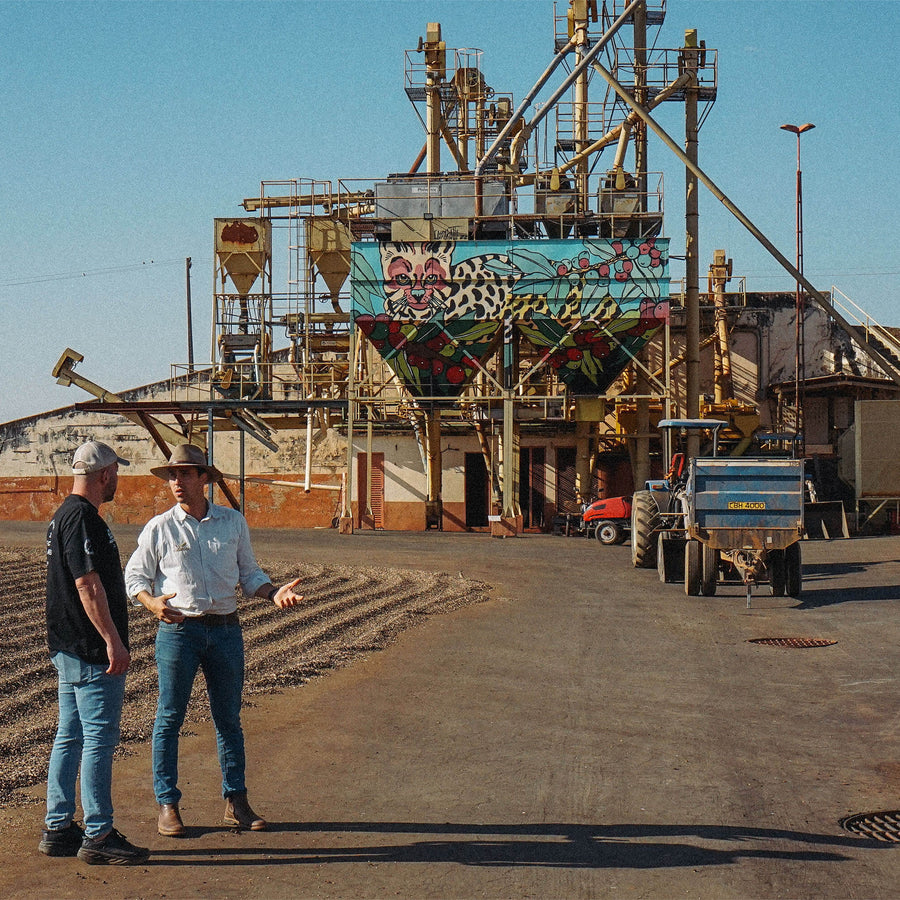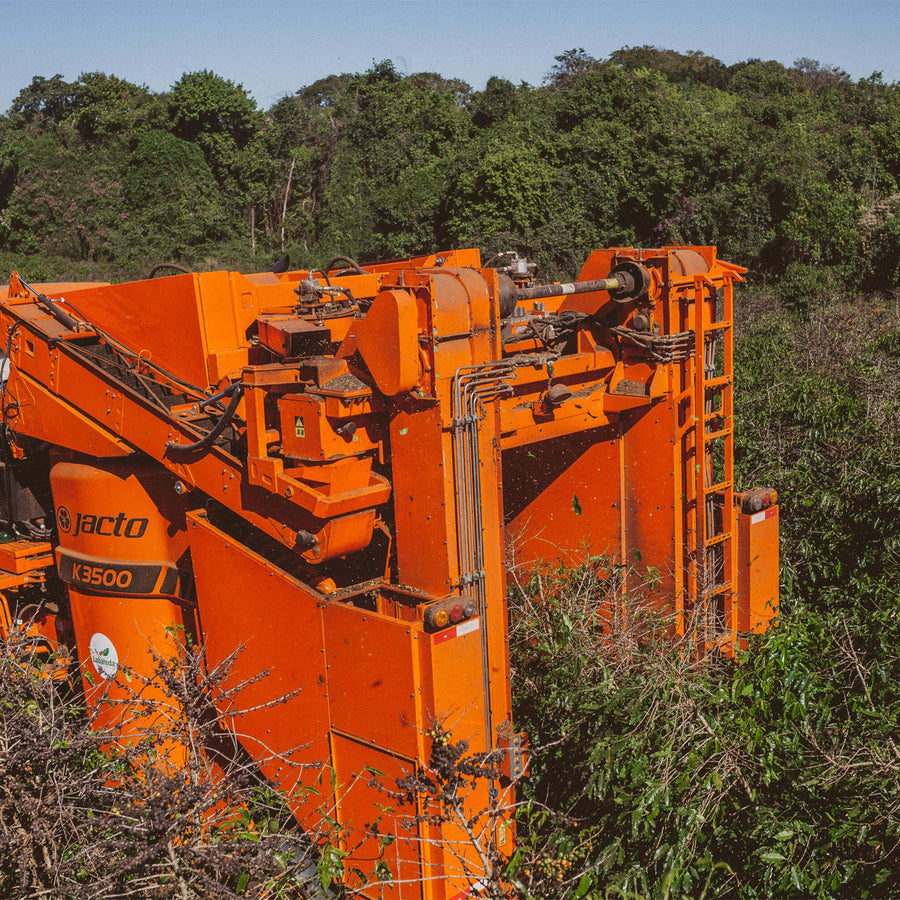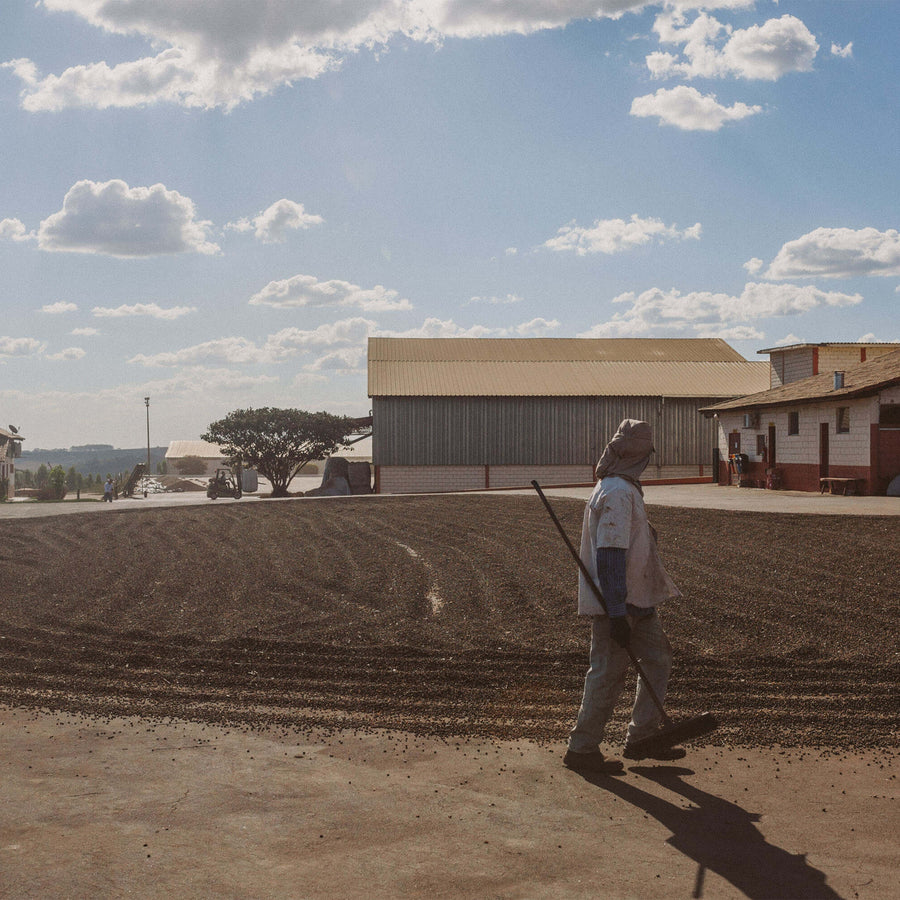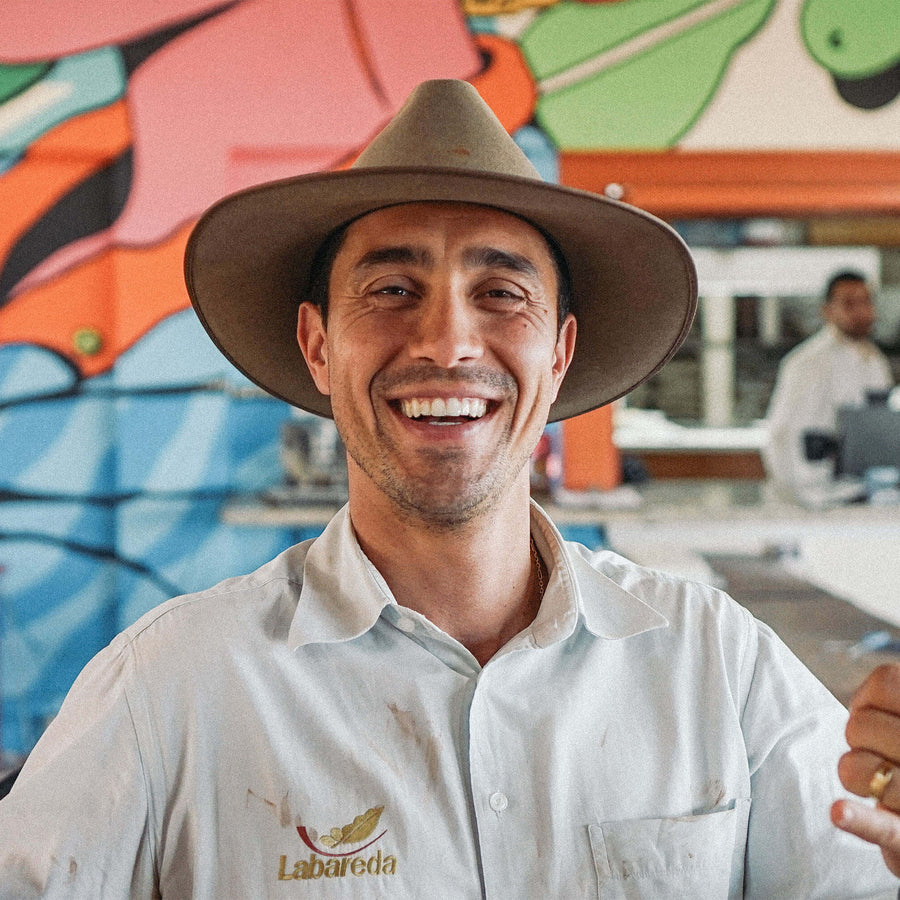Flavia and Gabriel Oliveira are multi-generational coffee farmers and producers who provide the lion’s share of our Brazilian purchases. We’ve been working with them since we opened our doors in 2013, and their coffees make up nearly half of what we roast at Commonfolk.
They run two farms (fazendas), Bom Jesus and Sao Lucas, alongside their sons, Gabriel Jr. and Lucas. These boys are the sixth generation of coffee workers in their family, with Gabriel Jr. taking over the reins in recent years. We first connected with the family in 2013, and he've been tight ever since. We've hosted Gabriel Jr. on a few occasions, and have made origin trips to visit the fazendas ourselves.
Gabriel Jr. manages their primary farm, Bom Jesus, which is equipped with all the gear and gadgets for modern coffee production. Lucas oversees Sao Lucas, a slightly smaller farm located roughly 30 minutes away down a dirt track, which even boasts its very own waterfall. These farms cover over three million coffee trees, and they’re always planting more.
Most Brazilian coffee is machine harvested, but Gabriel employs local people to handpick a portion of their beans. It's more expensive, but it's worth it to support the local economy and provide employment for their community.
They process their coffee in two main styles: Pulped-Natural and Brazil-Natural. The Pulped-Natural process is akin to a normal honey process, where the cherry is separated and pulped before drying. The coffee from Bom Jesus is then mechanically dried before being finished off on concrete patios. The Brazil-Natural process involves fully drying the coffee in cherry on patios, as compared to the raised beds common in East Africa and Central America.
Once the coffee has completed drying, it's blended into one of eight different grades based on its flavour and cup quality. The highest quality coffee is the Bom Jesus, which we've been featuring since day one. We also regularly purchase the Labareda and Terroir lots to use in our Godfather espresso blend year-round. The rest of the coffee is graded into lower quality lots and sold around the world. Even the lowest quality beans aren't wasted and are sold for internal domestic sales.
Unfortunately, in 2021, both farms were hit hard by frosts that wiped out almost a third of Brazil's entire coffee crop. It was a tough time for Brazilian producers, which caused the global price of coffee to skyrocket. Even at a higher price, we remained committed to buying all the coffee we needed from them. Long-term partnership requires give and take from both sides, and in turn, Gabriel has passed on cost savings to us when they’ve made improvements to efficiency or scaled operations.
 Cart
Cart
